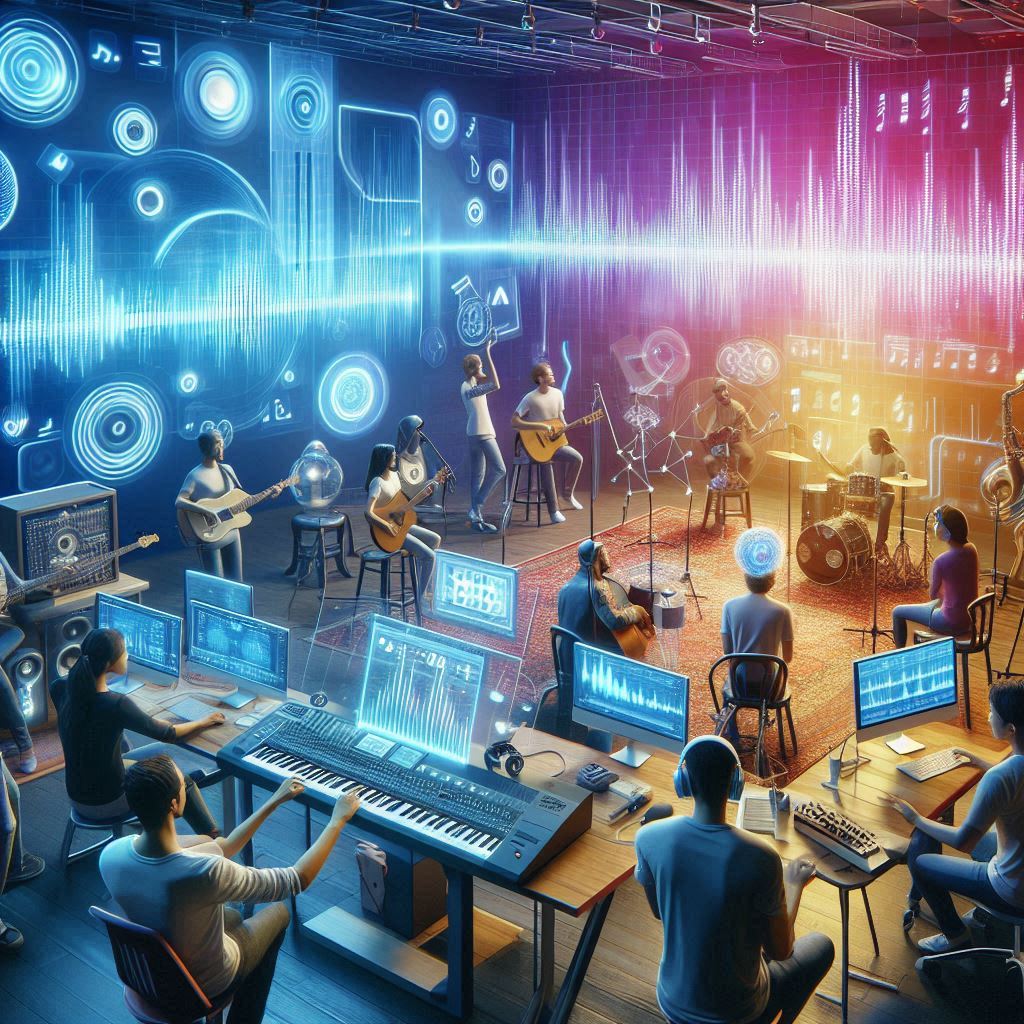The impact of AI on the music industry is profound and multifaceted. As technology continues to evolve, its integration into various aspects of music production, distribution, and consumption is becoming increasingly significant. This transformation is not merely about automation; it encompasses creativity, accessibility, and the overall experience of music for both artists and listeners.
The role of AI in music creation
The integration of AI into music creation is revolutionizing how songs are composed and produced. Artists are now collaborating with advanced algorithms that can analyze vast amounts of data to generate melodies, harmonies, and rhythms. This partnership between human creativity and machine intelligence is resulting in innovative sounds that might not have been conceived independently.
Enhanced composition tools
One of the most remarkable developments in this area is the emergence of tools that assist musicians in the composition process. Software powered by AI can suggest chord progressions or even complete musical arrangements based on a few input parameters from the artist. This capability not only accelerates the creative process but also provides musicians with fresh ideas, potentially leading to unique and diverse musical pieces.
The rise of AI-generated music
Moreover, AI-generated music is gaining popularity in various domains, from film scoring to background music in gaming and streaming services. These algorithms can produce entire tracks that mimic the style of established genres or artists, making it easier for creators to find suitable soundscapes for their projects. As the quality of AI-generated music improves, it raises questions about authorship and originality, challenging traditional notions of what it means to be a musician.
AI’s influence on music distribution and marketing
AI reshapes the music industry not only in creation but also in how music is distributed and marketed. The methods by which listeners discover and consume music are rapidly evolving, driven by data analytics and personalized recommendations.
Personalized listening experiences
Streaming services utilize AI to curate personalized playlists and recommendations based on users’ listening habits. By analyzing vast amounts of data, these platforms can predict what songs or artists a listener might enjoy, enhancing user engagement and satisfaction. This tailored approach not only benefits consumers but also helps lesser-known artists reach audiences that may not have discovered them otherwise.
Targeted marketing strategies
Additionally, AI is transforming marketing strategies within the music industry. Data-driven insights allow record labels and artists to identify trends and understand audience demographics more effectively. This information enables them to design targeted marketing campaigns that resonate with specific listener groups, maximizing the potential for success. The ability to analyze consumer behavior in real-time means that marketing strategies can be adjusted swiftly, ensuring that artists remain relevant in a rapidly changing musical landscape.
The future of AI in the music industry
The future of AI in the music industry holds immense potential, promising further innovations and possibilities. As technology continues to advance, the collaboration between AI and musicians is likely to deepen, leading to new genres and forms of artistic expression.
Ethical considerations and challenges
However, this evolution does not come without challenges. The rise of AI in music raises ethical questions regarding intellectual property and the role of human creativity. As AI systems become more adept at creating music that can rival human composers, the industry must grapple with issues of ownership and the definition of artistry. Ensuring that artists are fairly compensated for their work in a landscape increasingly populated by AI-generated content will be a crucial conversation in the coming years.
Embracing change
Ultimately, the music industry stands at a crossroads. Embracing AI offers exciting opportunities for innovation and creativity, but it also necessitates a careful consideration of the implications for artists and the industry as a whole. By fostering a collaborative relationship between human musicians and AI technologies, the industry can navigate this complex landscape while celebrating the transformative power of music.
In conclusion, the integration of AI into the music industry is reshaping how music is created, distributed, and consumed. As artists and technology continue to intersect, the future promises to be an exciting frontier for musicians and listeners alike. The journey ahead will require adaptation and openness to change, but the potential for artistic growth is boundless.

